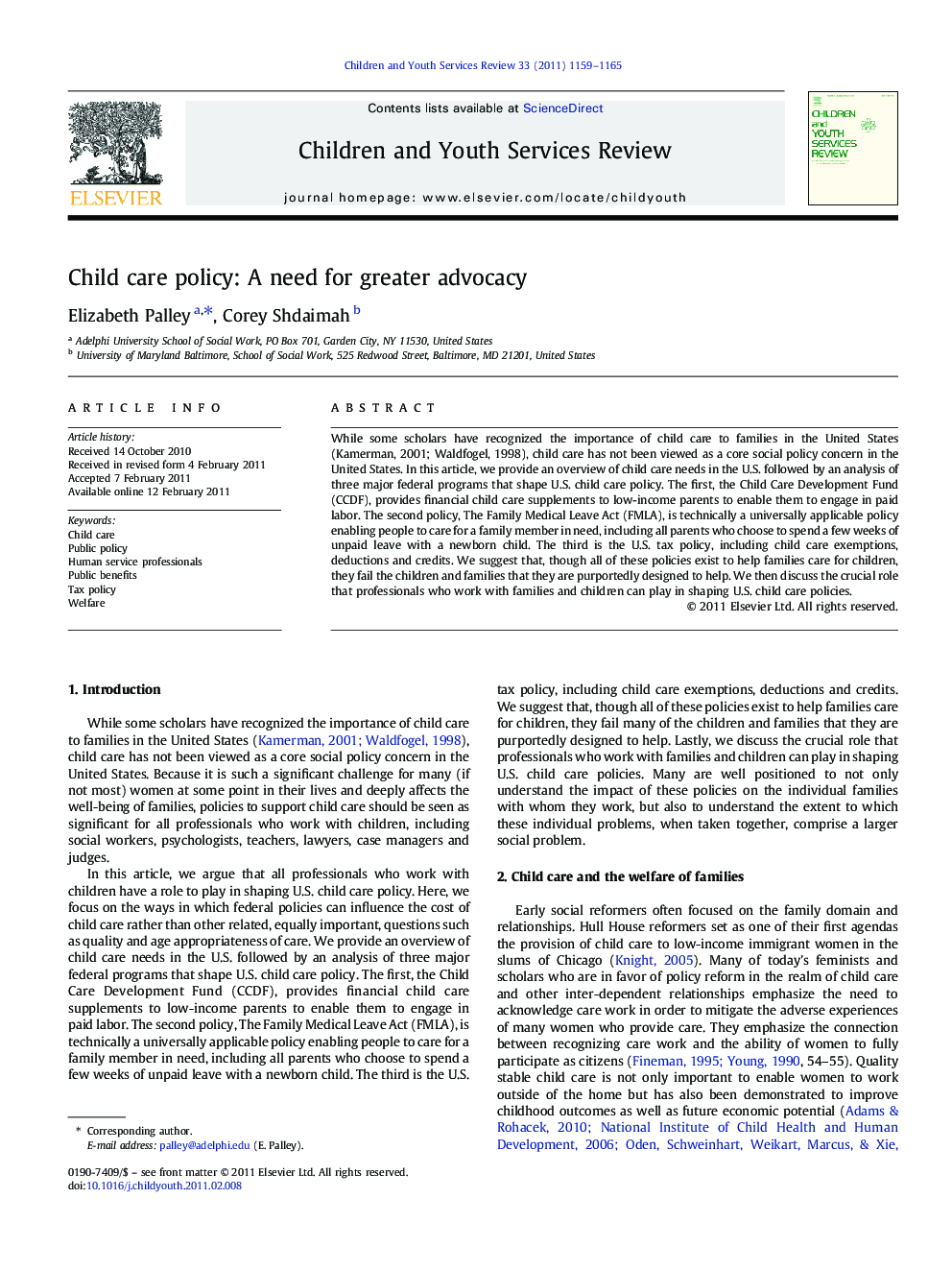| Article ID | Journal | Published Year | Pages | File Type |
|---|---|---|---|---|
| 346862 | Children and Youth Services Review | 2011 | 7 Pages |
While some scholars have recognized the importance of child care to families in the United States (Kamerman, 2001; Waldfogel, 1998), child care has not been viewed as a core social policy concern in the United States. In this article, we provide an overview of child care needs in the U.S. followed by an analysis of three major federal programs that shape U.S. child care policy. The first, the Child Care Development Fund (CCDF), provides financial child care supplements to low-income parents to enable them to engage in paid labor. The second policy, The Family Medical Leave Act (FMLA), is technically a universally applicable policy enabling people to care for a family member in need, including all parents who choose to spend a few weeks of unpaid leave with a newborn child. The third is the U.S. tax policy, including child care exemptions, deductions and credits. We suggest that, though all of these policies exist to help families care for children, they fail the children and families that they are purportedly designed to help. We then discuss the crucial role that professionals who work with families and children can play in shaping U.S. child care policies.
Research Highlights► Review and analysis of three major federal policies designed to support child care in the U.S. ► Analysis of the limitations of these policies. ► Implications for professionals who work with children and families.
